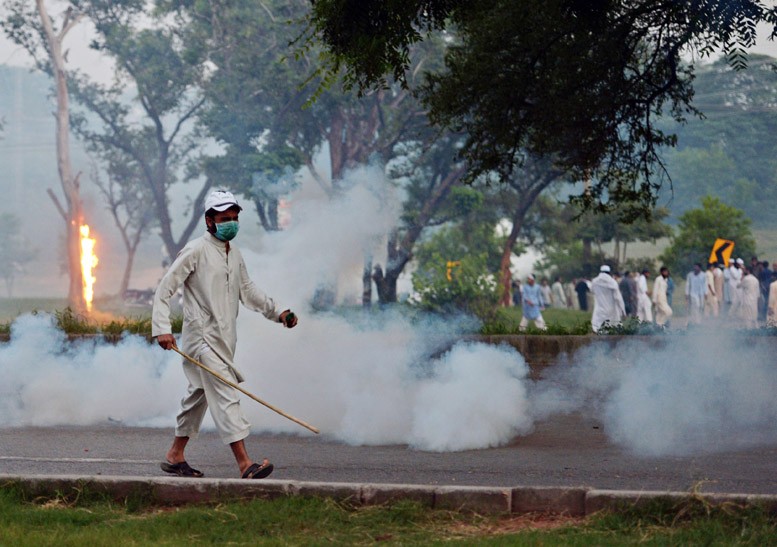
Instead of creating more controversies by debating the ideology of Pakistan, it is imperative to write a new narrative to unite and take forward the nation

There is a need to adopt a new narrative on the ideology of Pakistan to understand the circumstances which led Muhammad Ali Jinnah, once the ambassador of Hindu-Muslim unity, to part ways with Congress and push forward his demand for a separate homeland for Muslims in the subcontinent. But there is a question why an ideology is required to shape a nation state in the first place.
The struggle for Pakistan cannot be covered in one page of a history book as the national leaders had miles to go before reaching the cherished goal of independence. Unfortunately, the forefathers consumed all their lives in struggle and died one after another soon after the establishment of the country when they were set to play a new role in setting the direction for the future of the nation.
However, after the death of Jinnah, an unending discussion gripped the nation that Pakistan was made in the name of Islam or in the name of protecting their rights in a predominantly Muslims secular state. The notion of a Muslim state gave the religious quarters a ploy to claim Islam as the driving force behind the birth of the new state and called it as the ideology of Pakistan.
But a counter narrative, made by non-religious quarters, claim that there was nothing sort of a theological state in the mind of the great leader when he dreamed Pakistan as the nation state. Jinnah is not here to accept or reject any of the claims, but he would have abhorred the polarisation in the country that he and his colleagues had achieved after great struggle.
Since inception, Pakistan has been a testing ground for various democratic systems, constitutional orders and administrative disciplines where hurdles were created in the way of every system. Unfortunately, almost every breed of politicians after Liaquat Ali Khan tried to devise a system of the government to fulfill their personal ambitions and concentrate powers in one person. This one-man-show approach not only hindered the real growth of the country on the economic front, but also created confusions, contradictions and divisions within various segments of society and parts of the country. It is equally unfortunate that as soon as the nation got rid of a leader with this kind of mindset, another of his ilk came to fill the vacuum. The real issue of economy, which was the principle factor in the demand for a separate homeland for Muslims, went to oblivion. Instead, a set of new theories propped up to distract the nation from the real issues.
As a matter of fact, there are no two opinions that a separate country was demanded for the Muslims of India, but the great leader expressed his opinion on various occasions that the country will fully incorporate non-Muslims into its fold. According to him, once the struggle for Pakistan would end, another struggle would start for the development of economy and prosperity of the nation. However, banking on the political instability, religious quarters, despite various differences within them, filled the vacuum by making their way into politics.
There are two classic examples of pseudo-theological states -- Iran and Saudi Arabia -- where no individual or group is allowed to challenge the writ of the government in any manner. Those are the governments which decide the volume and version of Islam applicable in their lands. In contrast, Pakistan has the unique political culture where everyone is ready to challenge the writ of the government due to its inherent weaknesses. The religious quarters take refuge in Islam and claim the ideology of Pakistan is in line with the ideology of Islam.
The history of Pakistan shows that Islam as a binding force could not stop the formation of Bangladesh. Pakistan is no more an ideological state and we have to accept it as a reality whether we like it or not. The ideology is a thing of the past and should not be stuffed into the minds of the young generation to create patriotism. Islam always concentrates on the character building of an individual to create a pure and vibrant society. Educationists, academicians and scholars of the country should come out of their closets to lead the new generation to the path of reality rather than ideology.
The time has come to write a new narrative for the existence and identification of the nation. Several people were killed, vehicles were set on fire and private properties were damaged during the recent incidents of violence on a blasphemy issue. If the pressure groups from religious quarters are allowed to operate freely, a time will come where nobody will remain safe.
The wheel of history moves forward, but we have to follow Jinnah’s vision who wanted Pakistan a modern welfare state with ‘Unity, Faith and Discipline’ as the guiding principles. This is a state not only for Muslims, but also for every individual regardless of his religion, ethnicity or racial background. A new narrative is also necessary when the current government wants to bring a paradigm shift in the constitutional and administrative affairs of the country. A secular state does not mean an atheist state, but a country where every individual enjoys equal rights under the glowing principles of Islam. How one should feel when Muslim clerics want secularism in India, but theological system in Pakistan.